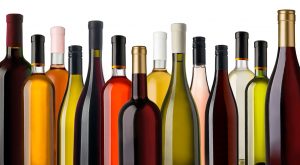Holiday celebrations not an easy time for those with addictions
By Holly Eitenmiller — December 8, 2017During the next few weeks the calendar will overflow with celebrations.
Christmas dinners, weddings, reunions, corporate parties, New Year’s Eve festivities — events where even the strictest of teetotalers may raise a glass in toast.
“When people get together, they like to have a casual drink,” said an East Peoria liquor store owner. “A lot of guests like to take a bottle of wine when they visit people as a nice gesture.”
But warm drinks with family and champagne toasts with friends, however, are not always cheerful occasions; they are watershed moments that lead to disastrous implications for millions of people.
According to the National Institute on Alcohol Abuse and Alcoholism, around 16 million adults have Alcohol Use Disorder, AUD, problem drinking that becomes severe and is usually characterized by compulsive alcohol use and loss of control.
“There was never just one drink for me. There never will be,” said Dan, a recovering alcoholic, speaking on a condition of anonymity. “It wasn’t just one bottle, either. I didn’t stop until I was in the hospital.”
Sober for more than a decade, Dan drank only a few times a year, but when he imbibed, he did so for days, mostly in a blackout state that usually ended with grand mal seizures.
“It was always, ‘I’ll just have one or two drinks,’” he recalled, “but I’m a binge drinker. There is no such thing as ‘just one drink.’”
AUD and alcoholism come in many forms. Some, like Dan, are occasional binge drinkers, others drink daily. Some are social, while others are “closet drinkers” who consume alone. Regardless of the circumstances or the results, the holidays are a trying time for people who are trying to avoid alcohol.
When faced with situations involving drinking, Char Richardson of Richardson Counseling & Wellness Center in Pekin suggests that those with a plan for sobriety plan ahead.
“Go late, leave early. Bring someone with you who supports you so you have accountability,” she said. “Visit and catch up with people, but have a backup plan to exit. Make a plan for something after you leave that doesn’t involve alcohol.”
Be prepared, Richardson said, to be approached with alcoholic drinks. Bring a non-alcoholic beverage, such as a “mocktail” or sparkling grape juice, to enjoy toasts and let people know of your abstinence in advance.
“It’s no different than telling people you have a food allergy,” Richardson said. “But If it’s too much, too overwhelming, sometimes it’s a matter of not going at all.”
According to the Peoria Area Intergroup Association website, there are 23 communities in central Illinois that host Alcoholics Anonymous groups. In Peoria, there are 14 groups, most of which hold meetings daily.
In addition to AA meetings, these groups also host speaker meetings, potlucks and other social events. And, for those reaching out for help, the Intergroup office has a 24-hour hotline, where people in sobriety are available for immediate support.
“It helps me to help other people, that’s how it works,” Dan said. “The holidays are a tough time for people. You can’t do it alone, I can’t do it alone.”
A comprehensive list of Alcoholics Anonymous groups, meetings and events, as well as links to support materials, maybe found at www.aapeoria.org.
— — Holiday celebrations not an easy time for those with addictions —-




